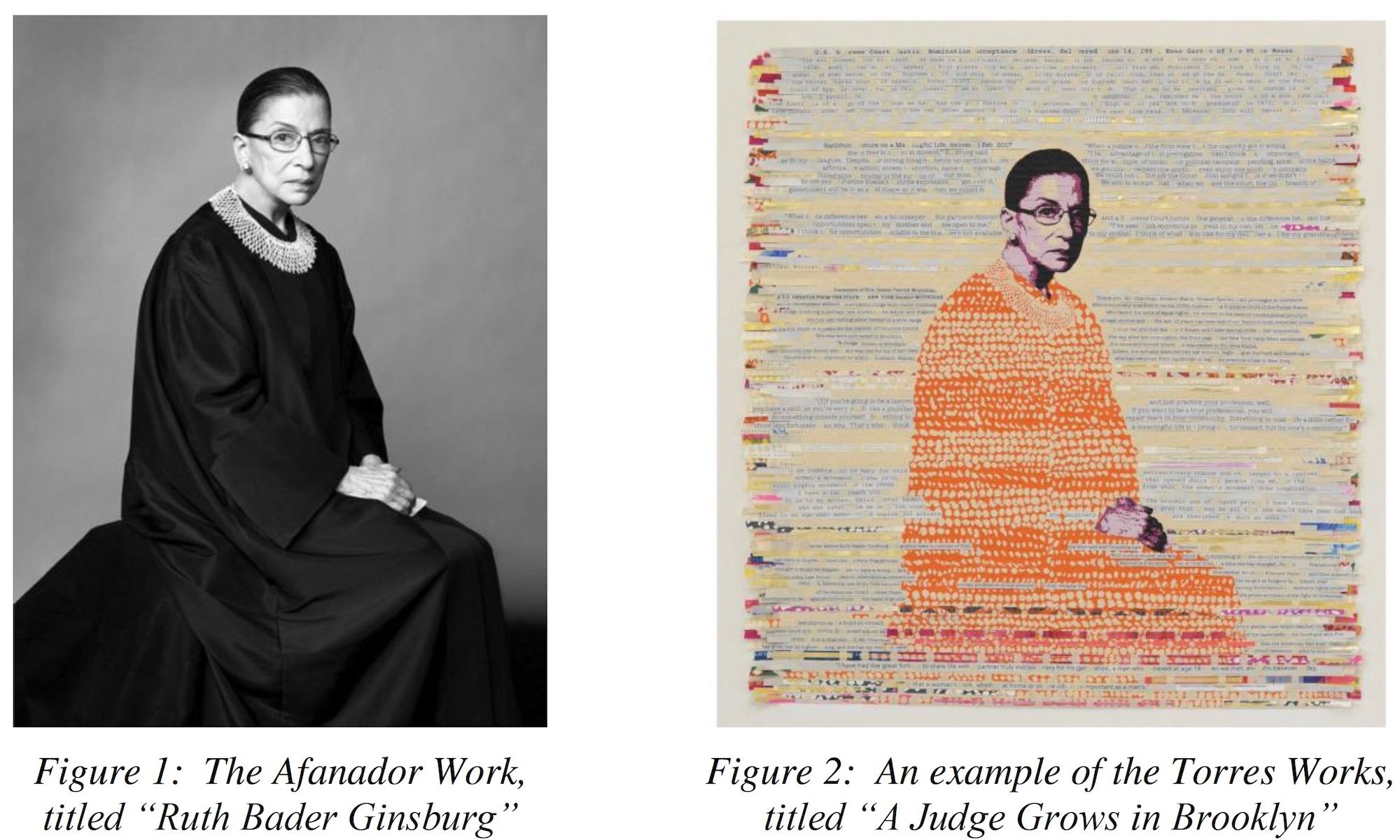Ruvén Afanador's photograph (left) and Julie Torres's artwork (right) shown side-by-side in US District Judge Jean-Paul Boulee's ruling. Court documents
A lawsuit claiming an Atlanta artist’s use of a famous photograph of the late US Supreme Court Justice Ruth Bader Ginsburg violated copyright law was thrown out by a federal judge this week.
Creative Photographers is a commercial photography agency that represents artists like Ruvén Afanador, who photographed Ginsburg in 2009 for The New York Times Magazine. The agency sued Atlanta-based artist Julie Torres in 2021, alleging she used Afandor’s image of the late judge without permission to create screenprints and mixed-media works.
Torres’s work featuring the Ginsburg portrait has sold for as much as $12,000, according to Creative Photographers’ complaint, and one screenprint is in the collection of the Metropolitan Museum of Art in New York. Super Diva! (2020) was created after Ginsburg’s death in September 2020 amid “reflection on her historic legacy and the great loss her death presented to the Court and the country”, according to the museum’s website.
Creative Photographers claimed to be the exclusive licensee of Afandor’s images, and accused Torres of purposefully uncrediting Alfanador’s photograph in her artwork. Torres filed a motion to dismiss the complaint last year.
US District Judge Jean-Paul Boulee ruled this week that Creative Photographers doesn’t own Alfanador’s copyright, and that the deal the agency signed with the photographer makes them his exclusive agent but not necessarily the exclusive licensee for his work. Even if the agreement did include a clause regarding exclusive licence, the contract doesn’t include stipulations that cover derivative works like Torres’s prints and mixed-media creations, Boulee wrote.
While Boulee threw out Creative Photographers’ lawsuit, he said he will give the agency two weeks to rework the complaint and refile.
Last month, a jury in New York ruled that a digital artist violated trademark law with his line of “MetaBirkins” NFTs (non-fungible tokens) in a lawsuit brought by luxury brand Hermès. The jury ruled that NFTs are not protected speech under the First Amendment and are subject to trademark law, which has more rigid guidelines on the use of logos, brand names and and other distinguishing symbols.

